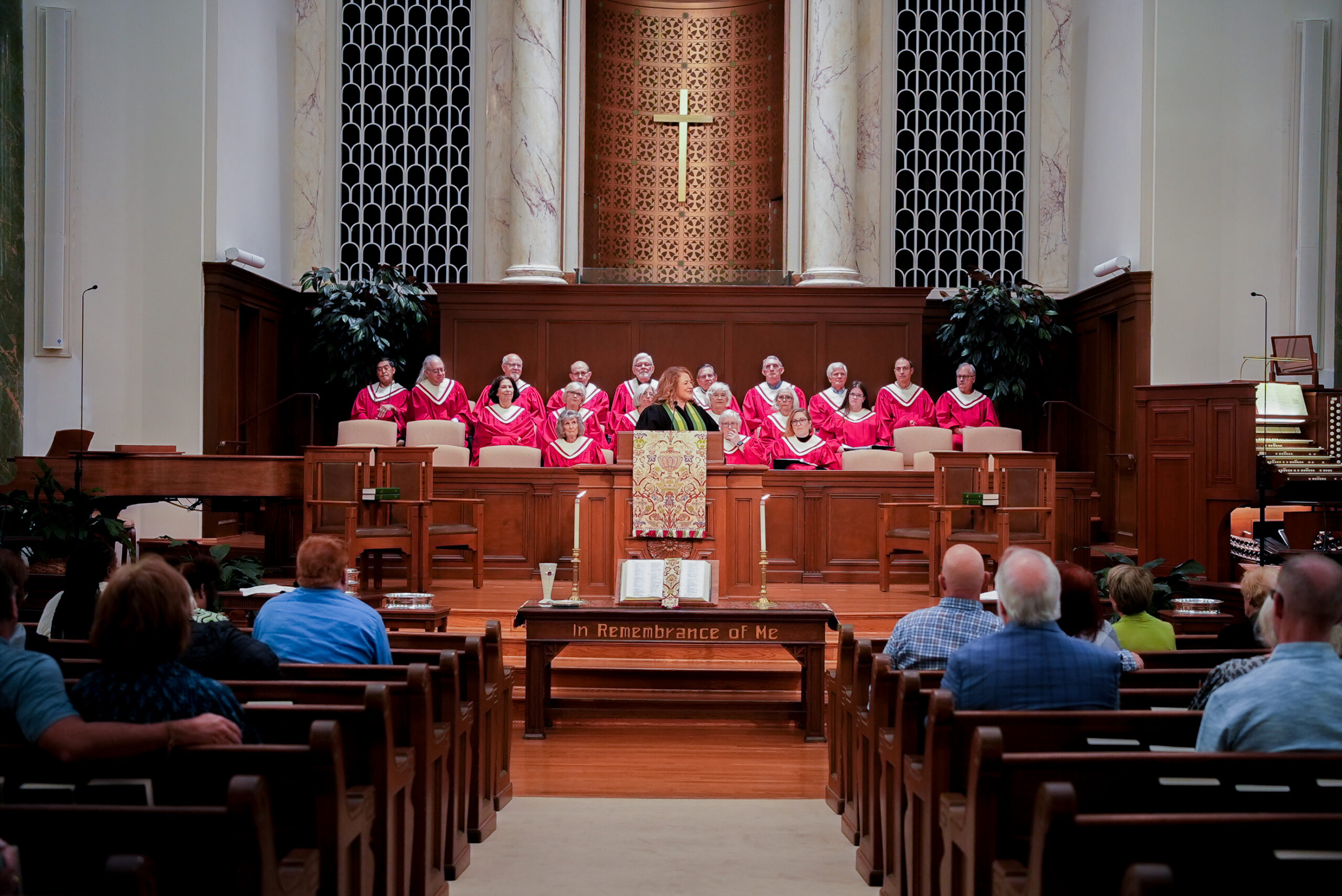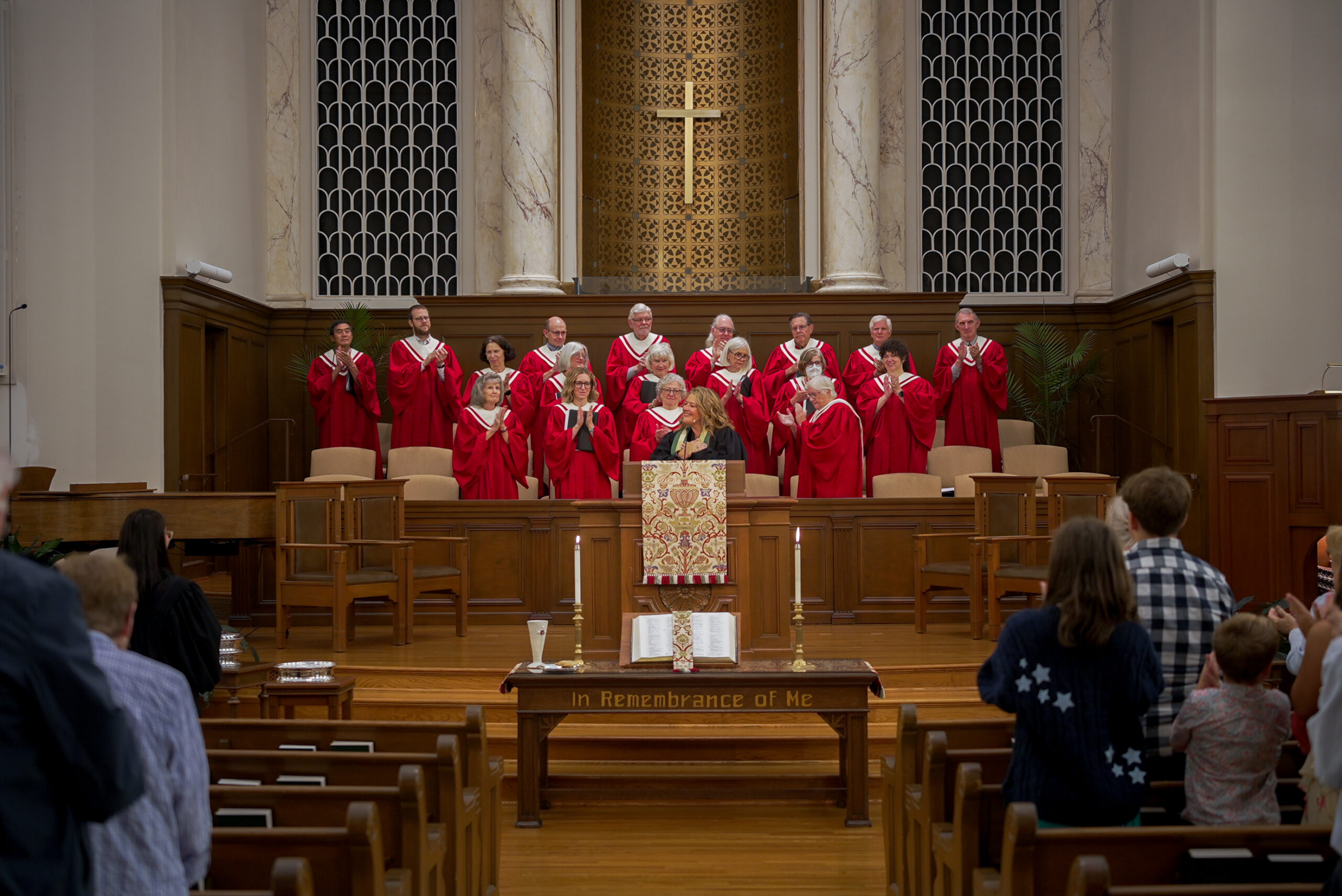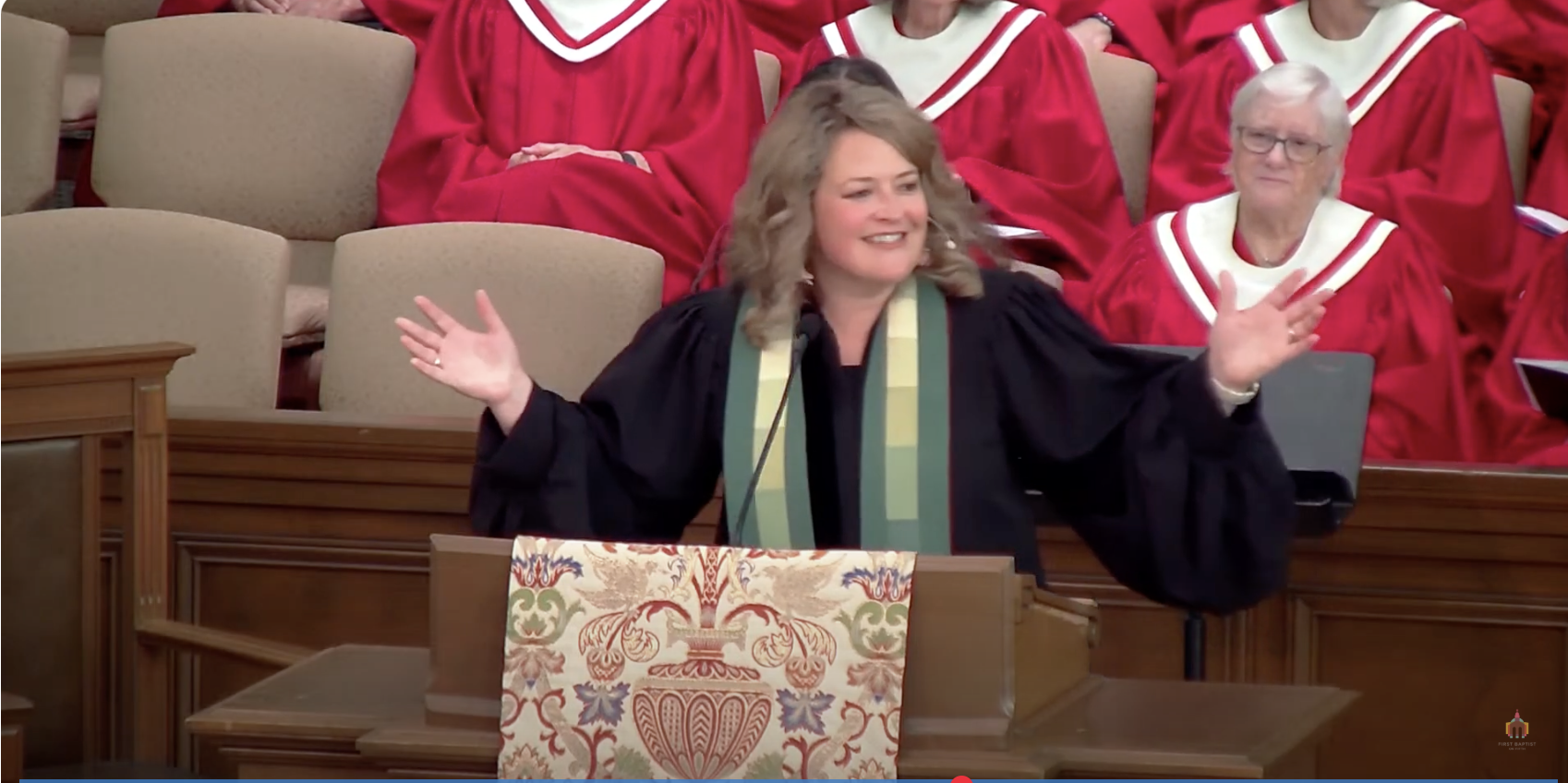IOn a warm Sunday morning in May 1911, a group of 13 friends set out
by foot and by buggy from Highlands, NC to Whiteside. After they enjoyed a
picnic lunch (that, according to history, they washed down with some liquor),
the group hiked to the Whiteside summit where there, they saw the
Nantahala National Forest unfold in stunning view below them. No sooner
were they admiring the vista than when the moment was interrupted by
terrified screams. Gus Baly, one of the group, had fallen from Fool’s Rock at
the summit and was lying just below on a narrow ledge, his feet entangled by
a rhododendron bush that was securing him from the 1000-foot precipice
below.
Another of the group – Charlie Wright, “a stout man of 38,” (how would
you like history to have that description of you?) saw that his buddy was alive
and became determined to reach him. Charlie knew the risks – how could you
not when you’re standing on the face of the mountain?! – yet he also saw a
narrow ledge in which to pass through to get to Gus. With strength and
resolve secured by encouragement from the group, focus on the task at hand,
two and a half hours of work, and the reins and harness from their buggie,
Charlie and his friends rescued Gus from his mountain fall.
Later, the Carnegie Hero Fund Commission gave Charlie its flagship
award – a gold medal and $2500 – for such a heroic rescue. Not just any
mountain hero got the award, though, for the rules of the rescue required the rescuer to place themselves in as much danger as the rescued (who couldn’t
be related), done not because it was their job but out of their desire.1
I learned of this story on Friday, standing at the top of aptly-named
Fool’s Rock and peering over its cliff to the narrow ledge Gus and Charlie
traversed below. There with my pastor friends for a weekend away, we all
loved this story of Gus and Charlie, the daring rescue and the reward. (And
some in our group – self not included! – even shimmied down to the now-far
more secure ledge to take it all in!) With dazzling views all around us from
our steep hike to the summit, I couldn’t help but to think of the mountain
itself: its inevitable risks and rewards.
IIWe’re on another mountain today – not in the Highlands of North
Carolina, but rather on a slope overlooking the sea of Galilee with Jesus, his
disciples, and crowds. Unlike the Whiteside Trail, this one isn’t full of daring
and liquor, but it too is certainly not without risk. For the next eight weeks,
we’ll be journeying with Jesus through what history and tradition has dubbed
the Sermon on the Mount.
While scholars and students of scripture call this stretch of Jesus’
teaching the “Sermon on the Mount,” we know that it wasn’t just one sermon
(that would be quite a sermon!), but rather more likely a collection of Jesus’
teachings gathered up by the writers of scripture into one stretch of text. And
the Mount upon which we’ll sit these weeks refers to the mountain Jesus
ascends before he teaches. It would recall for hearer and reader alike all the
sacred encounters that have happened atop a mountain throughout history,
particularly Mount Sinai of Moses’ deliverance of the Torah to the people of Israel.2 There on the mount with Jesus are two sets of listeners: the disciples
up close and the crowds perhaps listening from a distance.
It’s to the disciples that Jesus primarily offers these lessons. Those to
whom he spoke had already decided to follow him, those who had already
climbed the mountain. Now, he is detailing first for his disciples – near and far,
then and now – what these next steps of faith would be, bearing witness to
the shape of this Way, its contours and detours that illuminate the lives they’d
lead.
You see, to Matthew, this collection of teachings in the Sermon on the
Mount becomes this gospel’s signature scene, the essential key for
understanding and interpreting the fullness of Jesus’ life and story. And what
makes it that way? At its essence, the Sermon on the Mount becomes, like
one scholar said, “the beginner’s guide to the kingdom of heaven.” As we’ll
discover, that’s at the heart of what Jesus describes throughout these three
chapters, this imagination for God at work in the world. The kingdom of
heaven isn’t a place, it’s an occurrence. The kingdom of heaven isn’t
somewhere we go, rather it’s the way we are. It’s the way we travel, and it is
the Way we travel. The kingdom of heaven looks like the world, as Hamilton
says, turned upside down, where all receive their fill. The kingdom of heaven
becomes Matthew’s shorthand phrase to describe what the way of God at
work in this world can become with our help.3 And Jesus’ role is to point us in the right direction.
IIIWith all this in mind, let’s turn to where the sermon begins: the
Beatitudes. We take this word “beatitude” from the Latin word for “blessed.”
“Blessed are” as in our translation, or also: “happy are,” “rich are,” “favored
are,” “fortunate are,” “worthy of praise are.” Blessed or favored are the poor in
spirit, those who mourn, the meek, those who hunger and thirst for righteousness, the merciful, the pure in heart, the peacemakers, those who are persecuted for righteousness’sake…. For yours, Jesus says, yours is the kingdom of heaven!
These eight pillars of blessings – meekness, empathy, righteousness,
peace, persecution, purity, poverty and simplicity — illuminate for us a life of
faith lived against the grain of this world. Priorities like success and power
are held up against these blessings and reorient us to another way, one of
deeper meaning and intention. As one writer says, “so when we find
ourselves caught up in cravings for status or station, when we’re itching to be
rewarded for something we’ve done, the Beatitudes take those cravings and
flip them on their head, as if to say, ‘if you want to live a life of faith, aspire to
that which you disdain and disdain that to which you aspire.”4
Examine your life, Jesus invites us. Imagine a different world than the
one you see — a world where the powerful go to every possible length to hold
onto what they have, where the wealth gap grows by the minute, where
concepts like ‘justice’ and ‘reparation’ feel more politically-charged than
religiously-rooted, where a warming planet puts the most vulnerable in even
more danger, where trust and truth unravel with each tweet, where the
things that make us human — love, connection, thought, engagement — dull
and diminish with every moment spent in front of a screen.
Think of this world, Jesus says, then flip it and reverse it5, turn it on its
head, unhook the things that seem permanent — social class, relationship
patterns, economic systems, the way things are — and reattach instead to the
world as God dreams it — a world where good news comes to the poor and
recovery of sight to the blind, a world where the oppressed go free, the
mourning are comforted, the broken-hearted are bound up, a world where
doing justice, loving kindness, and walking humbly with God is the way that
people of faith are known. Imagine such a world because God already has,
and then live it into being! One writer says, “live as though the world is
turned upside down, because when you do you will see the kingdom, if not
come, then at least coming.”6
The blessings of the Sermon continues: “you are the salt of the earth,”
Jesus says, “you are the light of the world! So let your light shine before
others, so that the glory comes to God. These words and my life,” Jesus
names, “are a fulfillment of what you’ve long known. For the kingdom of
heaven is at hand!” Blessing pours forth on these who listen atop the
mountain; indeed blessing is always Jesus’ starting point.
IVSo “imagine that world and live it into being.” Easier said than done,
right? What might this life of blessing – of comfort and fullness, of mercy and
peace, of salt and light, of the dream no longer deferred but realized – what
might it look like, we wonder, in our actual lived day-to-day lives?
First and foremost, if and when the circumstances of your life have you
among the poor in spirit, the mourning, the meek, and those hungering and
thirsting for righteousness, or should you be among those seeking to do what’s right — the merciful, the pure in heart, the peace-wagers, the
persecuted, know that upon you rests God’s unique favor. God’s blessing is
already and not yet — already are you held within God’s mercy, and someday
within the reign of God, that will center you in the kingdom of heaven.
If and when the circumstances of your life have you living outside of
these categories — not among the poor or the hungry, those in need of refuge
and rest, those grieving and lamenting, those persecuted or peace-waging —
then might you feel the holy imperative to sit among these Beatitudes,
choosing to deepen your relationship with God by drawing closer to those
that God in Christ calls blessed.
What might it look like to live in such an alternative reality? What shifts
in our ethics — our behaviors and gestures and habits and practices — will
accompany a shift in our spiritual location? What will we risk to be among the
community of the blessed — each and every day?
I’m certain that imagining such a world and living it into being will look
different for each and every one of us. I wonder, though, what might emerge
within us and among us if you did just that. Perhaps it might look something
like this:
Refuse to define yourself by whatever status in life you’ve been granted
because of your car, your zip code, your resume, your alma mater. Liberate
yourself from whatever authority you give to your successes to measure your
worth. Look at another’s suffering square in the face, turn towards another’s
pain, grieve together, and let it all get under your skin. Do not numb yourself
from it. Persist in the face of oppression without giving into the desires for
violence or retaliation. Choose to be hungry for a desire you let go unmet.
Give yourself a little less — less money, less food, less screen time, less accomplishments — so that you might give those around you a little more —
more attention, more love, more resources, more energy. Free yourself from
the tyranny of perfection and greatness, so that you might open yourself to
sharing and receiving mercy. Look for God in the ordinary — the twigs, the
sky, the rustling breeze, the call of a bird, the bread and cup and ordinary
extraordinary things that happen around a table. Wage peace with the fervor
of those who wage war. Practice peace within yourself, your marriage, your
friendships, your families, your workplaces, and yes, even your church. Incite
joy7, trusting that joy is the precise buoy to pain. And do all of this knowing
that with such a life comes a cost — the cost of discipleship, the cost of
bringing to life such a reversal, the cost of living as Jesus did, the cost of risk.
Indeed it is a stumbling block to some and foolishness to others, but to we
who proclaim Christ crucified, it is the power and wisdom of God.
VLet me take us to one last mountain – this one is called the Monte de
Gozo, or Mount of Joy. For pilgrims nearing the end of their Camino de
Santiago, the long ascent between the small hamlet San Marcos and the great
city of Santiago ended on the Mount. Cries of joy, which is how the mountain
was named, would echo around the path, for there, pilgrims would catch their
first glimpse of the spires of the cathedral. They knew their long journey was
coming to a close! Last summer on our pilgrimage, I added my cry along with
hundreds of years of pilgrims before me: feet blistered, legs aching, body
weary, but spirit now alive with joy for the destination was now in sight!
I can’t help but to hear the Sermon on the Mount, particularly here in
its opening strains, and think that Jesus is asking us to see that his Way of life is lived between risk and joy. That the kingdom of heaven cannot be found
apart from either. Again from the wonderful scholar Amy-Jill Levine: “To go
up the mountain is to risk one’s balance: our ears might pop; we might get
dizzy; we might trip. Or we might hear something we cannot handle. Making
the climb is the first step, and it is already a commitment. Staying on the
summit and realizing we could do even more requires more courage, and
letting that experience transform us, transfigure us, is scarier still. But the
effort is worthwhile. The vista is gorgeous. We become cities set on a hill –
but we’re not [quite] there yet.”8
But right there on the Way of life, right there between risk and joy,
right there as we imagine the world as it is becoming the world as God
dreams it to be, right there, right in the middle, right in its essence is blessing.
Blessing! Blessing that grounds us along the Way. Blessing that rescues us
from even the deepest sorrows. Blessing that imagines a new world into
being. Blessing that looks like a longer table, not a higher wall; filled with first
and last, with least and lost, with all God’s beloved children together at last to
feast in abundance. The path may be narrow, and the Way may be long, but
blessing will be found in every single step. Amen!






